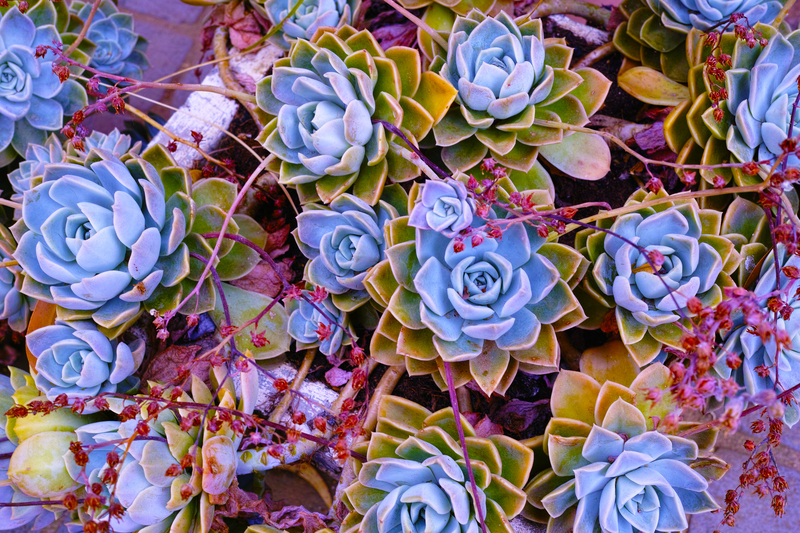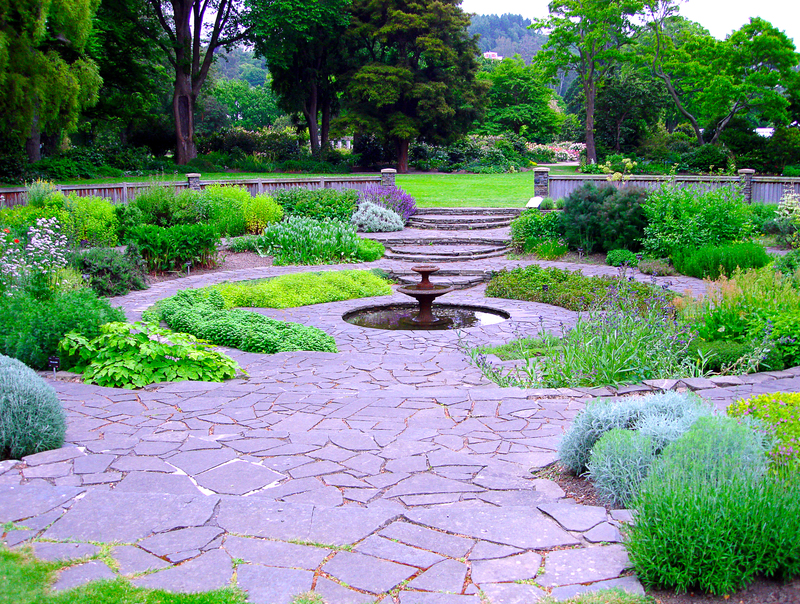Discover 9 Essential Tips to Kickstart Your Gardening Adventure
Posted on 01/07/2025
Discover 9 Essential Tips to Kickstart Your Gardening Adventure
Embarking on a gardening adventure is both rewarding and therapeutic. Whether you're a budding horticulturist or a novice eager to cultivate your own green paradise, starting a garden can seem daunting. Fortunately, with the right advice, you'll unearth a world of joy and productivity in your backyard. This article provides you with comprehensive, SEO-optimized guidance--the 9 best tips for new gardeners--to ensure your garden grows successfully from day one.
Why You Should Begin Your Gardening Journey
Embracing horticulture offers numerous benefits, from relieving stress and promoting mental well-being, to providing fresh air and healthy produce. In addition, gardening for beginners helps you reconnect with nature and transforms your outdoor environment into a lush, personal sanctuary.
- Boosts physical and mental health
- Encourages sustainable living
- Enhances the value and beauty of your home
- Offers a sustainable food source

1. Assess Your Growing Space
Before you plant your first seed, it's vital to evaluate your available gardening space. Consider whether you're working with a spacious yard, a cozy balcony, or a sunny windowsill. Understanding your space guides what types of plants you can grow and how you should organize your garden.
- Measure your gardening area to determine possible layouts.
- Observe sunlight exposure during different times of day.
- Take note of wind patterns, as strong winds may damage delicate plants.
- Consider accessibility for watering and maintenance.
2. Know Your Soil
The foundation of every flourishing garden is healthy soil. It's essential to understand your soil's type and quality, as this directly influences plant vitality and growth.
- Perform a simple soil test to check its pH and nutrient content. Kits are available at most garden centers.
- Amend with compost, manure, or organic matter to enrich poor soil.
- For limited spaces or poor earth, consider raised beds or container gardening with quality potting mix.
Tip: Healthy, well-draining soil prevents waterlogging and root rot--common pitfalls for many new gardeners.
3. Choose the Right Plants for Your Region
Selecting plants that thrive in your local climate and soil is crucial for a successful start to your gardening adventure. Not all plants can cope with every environment, so do a little research:
- Select native species to your area for easier upkeep and pest resistance.
- Check the USDA planting zones or your country's equivalent.
- Look for plants labeled "easy to grow" or "beginner-friendly".
- Balance annuals for a splash of seasonal color, and perennials for lasting structure.
Choosing appropriately not only ensures higher yields but also minimizes maintenance and reduces disappointment.
4. Plan and Design Your Garden
Thoughtful garden planning can be the difference between a thriving paradise and a tangled mess. Take time to design your layout, considering visual elements and plant compatibility.
- Draw a sketch mapping where each plant will go, factoring in their mature size.
- Group plants with similar sun, water, and soil requirements.
- Allocate pathways for access.
- Use vertical gardening solutions in small spaces to maximize yield.
A well-organized garden not only looks beautiful but is also easier to maintain.
5. Start Small and Simple
One of the best gardening tips for beginners is to keep your ambitions realistic. Start with a manageable plot or a few containers and gradually increase the size as you gain confidence and experience.
- Pick a handful of easy-care plants, such as lettuce, radishes, marigolds, or succulents.
- Use starter kits or transplants for instant results and motivation.
- Avoid overplanting, which often leads to crowding and disease.
As your skills blossom, you can experiment with new species or expand your garden's scope.
6. Master the Basics of Watering
Correct watering is a cornerstone of successful gardening. Both under-watering and over-watering can stress or kill plants, making it essential to learn the right technique for each plant type.
- Water early in the morning to minimize evaporation and fungal growth.
- Check soil moisture by sticking your finger an inch into the soil; if it's dry, it's time to water.
- Always water at the base of plants, not on the foliage, to prevent illnesses.
- Consider using mulch to retain soil moisture and suppress weeds.
For container or raised bed gardens, they may need more frequent watering due to increased drainage.
7. Feed and Protect Your Plants
Plants, like people, thrive when given proper nutrition and protection. Fertilize your garden with natural compost or organic fertilizers to boost growth. Integrated pest management also keeps your plants safe from harm:
- Apply fertilizers according to plant needs--avoid overfeeding, which can harm roots.
- Monitor regularly for signs of disease or pests.
- Use natural pest deterrents such as neem oil, ladybugs, or companion planting.
- Encourage biodiversity to keep harmful bugs at bay.
Pro Tip: Crop rotation and diversity are key secrets to robust, pest-resistant gardens.
8. Stay Committed and Consistent
Consistency is essential for garden growth. Set aside a few minutes daily or weekly for weeding, cleaning, and pruning. The more regularly you tend to your garden, the more familiar you'll become with its rhythms and needs.
- Weed regularly to prevent competition for nutrients.
- Trim dead or diseased growth quickly.
- Keep a gardening journal to track plant progress and care routines.
- Stay observant--catching problems early often leads to easier solutions.
Remember, gardening is a journey--not a race. Enjoy watching your progress and celebrate your achievements.
9. Keep Learning and Enjoy the Process
Gardening for beginners is all about discovery! Each growing season brings new lessons. Don't be discouraged by mistakes--instead, treat every setback as a valuable step towards becoming a pro gardener.
- Read books, blogs, or magazines about gardening adventures.
- Join local gardening clubs or social media groups to exchange ideas.
- Attend workshops or watch online videos for practical demonstrations.
- Experiment with new techniques or plant varieties in a small section of your garden each year.
Most importantly, enjoy the serenity and satisfaction that comes from nurturing life!

Bonus Tips to Enhance Your Gardening Experience
- Invest in quality gardening tools for comfort and efficiency--pruners, trowels, and gloves make tasks easier.
- Practice organic gardening techniques for sustainable, eco-friendly results.
- Don't forget to decorate your green space with art or outdoor furniture to create a welcoming retreat.
Final Thoughts: Your Green Thumb Awaits!
Now that you have the 9 essential tips to kickstart your gardening adventure, you're ready to plant the seeds of success! Remember to start small, remain patient, and nurture your curiosity. With steady care, your plants will thrive--and so will your confidence. So, grab your gloves, unearth your ambition, and let your gardening journey begin.
Latest Posts
Elevate Your Garden Appeal with Expert Seating Tips
Practical Solutions to Keep Your Garden Safe in Harsh Weather
Green Thumb Tips for a Blooming Herb Sanctuary

